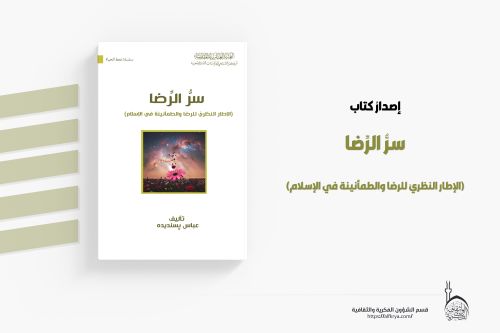

Grammar


Tenses


Present

Present Simple

Present Continuous

Present Perfect

Present Perfect Continuous


Past

Past Continuous

Past Perfect

Past Perfect Continuous

Past Simple


Future

Future Simple

Future Continuous

Future Perfect

Future Perfect Continuous

Passive and Active


Parts Of Speech


Nouns

Countable and uncountable nouns

Verbal nouns

Singular and Plural nouns

Proper nouns

Nouns gender

Nouns definition

Concrete nouns

Abstract nouns

Common nouns

Collective nouns

Definition Of Nouns


Verbs

Stative and dynamic verbs

Finite and nonfinite verbs

To be verbs

Transitive and intransitive verbs

Auxiliary verbs

Modal verbs

Regular and irregular verbs

Action verbs


Adverbs

Relative adverbs

Interrogative adverbs

Adverbs of time

Adverbs of place

Adverbs of reason

Adverbs of quantity

Adverbs of manner

Adverbs of frequency

Adverbs of affirmation


Adjectives

Quantitative adjective

Proper adjective

Possessive adjective

Numeral adjective

Interrogative adjective

Distributive adjective

Descriptive adjective

Demonstrative adjective


Pronouns

Subject pronoun

Relative pronoun

Reflexive pronoun

Reciprocal pronoun

Possessive pronoun

Personal pronoun

Interrogative pronoun

Indefinite pronoun

Emphatic pronoun

Distributive pronoun

Demonstrative pronoun


Pre Position


Preposition by function

Time preposition

Reason preposition

Possession preposition

Place preposition

Phrases preposition

Origin preposition

Measure preposition

Direction preposition

Contrast preposition

Agent preposition


Preposition by construction

Simple preposition

Phrase preposition

Double preposition

Compound preposition


Conjunctions

Subordinating conjunction

Correlative conjunction

Coordinating conjunction

Conjunctive adverbs


Interjections

Express calling interjection


Grammar Rules

Preference

Requests and offers

wishes

Be used to

Some and any

Could have done

Describing people

Giving advices

Possession

Comparative and superlative

Giving Reason

Making Suggestions

Apologizing

Forming questions

Since and for

Directions

Obligation

Adverbials

invitation

Articles

Imaginary condition

Zero conditional

First conditional

Second conditional

Third conditional

Reported speech


Linguistics

Phonetics

Phonology


Semantics


Pragmatics

Linguistics fields

Syntax

Morphology

Semantics

pragmatics

History

Writing

Grammar

Phonetics and Phonology

Semiotics


Reading Comprehension

Elementary

Intermediate

Advanced


Teaching Methods

Teaching Strategies
Southeastern phonology: vowels and diphthongs GOAT-GOAL split and GOAT
المؤلف:
Ulrike Altendorf and Dominic Watt
المصدر:
A Handbook Of Varieties Of English Phonology
الجزء والصفحة:
190-9
2024-03-07
1276
Southeastern phonology: vowels and diphthongs GOAT-GOAL split and GOAT
London English and other Southeastern accents are subject to a phoneme split whereby oppositions such as goal  and goat
and goat  have developed. Interaction of this alternation with L vocalization has led to the emergence of further contrasts between pairs like sole-soul
have developed. Interaction of this alternation with L vocalization has led to the emergence of further contrasts between pairs like sole-soul  and so-sew
and so-sew  .
.
In London and Southeastern varieties the GOAT vowel is diphthongal. The basic socio-phonetic principle is: the more front and open the starting-point, the more basilectal the variant. The most basilectal form is a variant approaching  with a full front and open starting-point. Suburban working-class and middle-class speakers use a variant with a less open starting-point in the area of
with a full front and open starting-point. Suburban working-class and middle-class speakers use a variant with a less open starting-point in the area of  . Recently, an additional new set of variants has emerged. The first element is similar to the old mesolectal London GOAT variant
. Recently, an additional new set of variants has emerged. The first element is similar to the old mesolectal London GOAT variant  , but the endpoint is different. This element has been considerably advanced and has variable lip rounding resulting in alternation between
, but the endpoint is different. This element has been considerably advanced and has variable lip rounding resulting in alternation between  and
and  . These new variants were found by Altendorf (2003) in London, Colchester and Canterbury and by Williams and Kerswill (1999) in Milton Keynes and Reading. Williams and Kerswill (1999: 143) report even further fronting of the second element resulting in variants of the
. These new variants were found by Altendorf (2003) in London, Colchester and Canterbury and by Williams and Kerswill (1999) in Milton Keynes and Reading. Williams and Kerswill (1999: 143) report even further fronting of the second element resulting in variants of the  type. In addition, they have found an extra set of variants in Reading. The Reading adolescents have variants with a more central onset of the
type. In addition, they have found an extra set of variants in Reading. The Reading adolescents have variants with a more central onset of the  type which they use alongside with the Milton Keynes set.
type which they use alongside with the Milton Keynes set.















 قسم الشؤون الفكرية يصدر مجموعة قصصية بعنوان (قلوب بلا مأوى)
قسم الشؤون الفكرية يصدر مجموعة قصصية بعنوان (قلوب بلا مأوى) قسم الشؤون الفكرية يصدر مجموعة قصصية بعنوان (قلوب بلا مأوى)
قسم الشؤون الفكرية يصدر مجموعة قصصية بعنوان (قلوب بلا مأوى) قسم الشؤون الفكرية يصدر كتاب (سر الرضا) ضمن سلسلة (نمط الحياة)
قسم الشؤون الفكرية يصدر كتاب (سر الرضا) ضمن سلسلة (نمط الحياة)

















